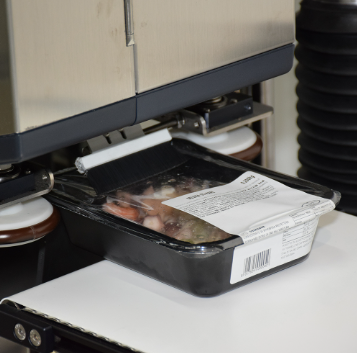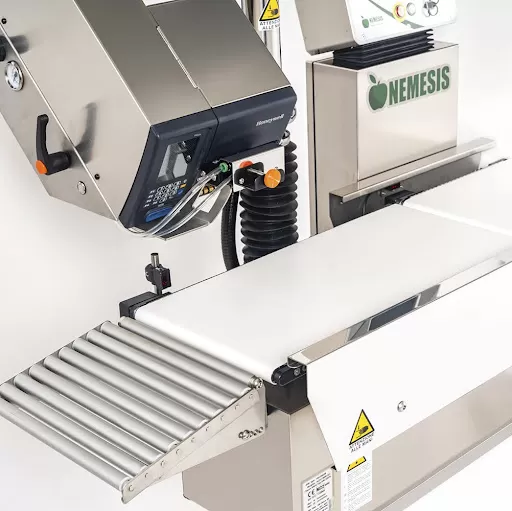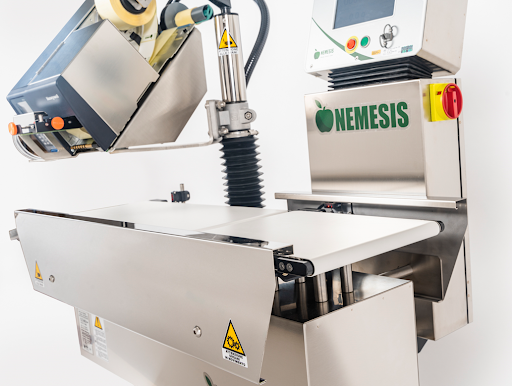
16 December 2024
5 useful tips for choosing the most suitable metal detector
Guide to choosing an industrial metal detector: discover how to improve quality and safety in your production line
Food traceability: what is it and why is it important for food safety?
08 May 2024
Food traceability is essential to ensure the quality and safety of food intended for consumption. Thanks to food traceability, it is possible to monitor the path of each food product from production to consumption, identifying and managing potential risks along the entire production chain. In addition, food traceability ensures that products comply with safety and quality regulations and also represents an added value for consumers, who, today more than ever, require transparency regarding the characteristics and origin of the foods they consume.
In this context, it is therefore important that food companies adopt accurate and reliable traceability systems, using, among others, also appropriate weighing and labelling machinery. Advanced weighing and quality control systems make it possible to verify that the quantities of products are accurate and comply with values set, while a correct labelling of products is essential to provide detailed information on the origin, ingredients, production and expiry dates and storage methods, thus contributing to safer and more informed consumption.
Let’s see specifically what food traceability is, why it is important for food safety and what weighing and labeling systems are needed to ensure the efficiency and accuracy of processes in the food industry.
Food traceability refers to the ability to track the path of any food throughout the production, processing and distribution chain. In other words, food traceability makes it possible to identify the origin of a product, as well as all the stages of its journey, from raw materials to the final consumer, allowing a more effective control of food quality and safety.
At the regulatory level, the European Union has established a series of regulations governing the traceability of food. Among these, Regulation (EC) No. 178/2002, known as the "General Regulation on Food Safety", enshrines the fundamental principle of food traceability in the EU. This Regulation provides that food business operators should be able to identify and trace all food products that they have produced, processed or distributed, and to provide precise information on them to the competent authorities where necessary.

Having clarified what is meant by "food traceability", let’s see what is meant by food tracking. The distinction between tracing and tracking is crucial to fully understand the system of control and management of food safety.
As we have seen, traceability refers to the ability to follow the path of a food product along the entire production, processing and distribution chain, following all the stages of its journey to the final consumer.
Food tracking, on the other hand, indicates the opposite process and consists in the ability to retrieve specific information on a particular food product in case of a request by the control authorities or the need for rapid identification of the provenance. In essence, food tracking is the ability to go back in time to quickly identify the source of a problem or potential threat to food safety. This process is crucial, for example, in case of product contamination or recall, where timely action is needed to limit the risks to the health of consumers.
Traceability is crucial in the food industry for several reasons. Firstly, it ensures consumer safety by enabling companies to promptly manage hazardous situations and to withdraw contaminated or unsafe products from the market, while minimizing health risks. In addition to this, it is important to:
In the context of food traceability, automated weighing systems and end of line controllers play an essential role in ensuring that food is identified and tracked accurately and reliably throughout the production chain. Advanced end-of-line weighing and control solutions - such as checkweighers and weigh price labelers - allow to accurately determine the weight of food and to label it accurately, ensuring correct identification and traceability.
Checkweighers, in particular, are indispensable machines to verify that the weight of food complies with the specifications and regulatory requirements of each specific production process before the products leave the production line. These machines allow in fact to obtain an accurate weighing, detecting even minimal variations in weight that could indicate quality problems, such as the lack of components in a packaged product. Their ability to weigh quickly and accurately also allows them to optimize and speed up production processes without sacrificing quality. This is crucial in the food industry, not only to ensure compliance with commercial and safety regulations, but also to reduce waste, as any non-compliant product can be immediately removed from the production line.

Weigh price labelers are particular machines that combine the weighing function with that of labelling and allow you to apply labels that bear different information, such as the weight and price of the products, but also other important traceability information, such as production batches, manufacturer information, expiration dates and unique codes. Labels often incorporate identification codes such as barcodes or RFID tags, that facilitate the automated collection of data along the entire distribution chain and allow the integration of data into computer systems that monitor the product path through distribution and retail. This automation makes the tracking process faster, more accurate, and less susceptible to human error, allowing companies to respond promptly in situations of product recall or health authority verification.
Nemesis checkweighers and weigh price labelers are technologically advanced solutions, specifically designed to effectively meet the needs of traceability, precision and efficiency in the production lines of food industries. The checkweighers stand out for their reliability and precision and are able to carry out extremely accurate and fast weight checks on a wide range of food products.
Thanks to the sophisticated weighing software Easyweigh®, Nemesis machines can solve all the problems related to the classic weighing technology and improve the weighing accuracy, thus ensuring full compliance with all quality standards and regulations in the food industry.
Nemesis weigh price labelers integrate advanced labeling capabilities with high-precision weighing systems. After weighing the products, these devices are able to automatically print and apply labels containing all the necessary information, such as weight, price, nutritional information and traceability data, such as lot number and expiration date. Available in different configurations, they ensure fast and accurate labeling, essential to ensure the complete traceability of products throughout the distribution chain, also facilitating recall and inventory management operations.

Nemesis solutions are highly customizable and can be adapted to various types of production lines, even the most complex ones, offering maximum operational flexibility to food companies. In addition, the robustness and ease of maintenance of Nemesis machines ensure a long service life and a low operating cost, factors that translate into a quick and substantial return on investment.
For more information on Nemesis weighing and weigh price labeling systems, contact us or request a customized quote.
News & Events
We'll be happy to follow-up your request within 24 hours